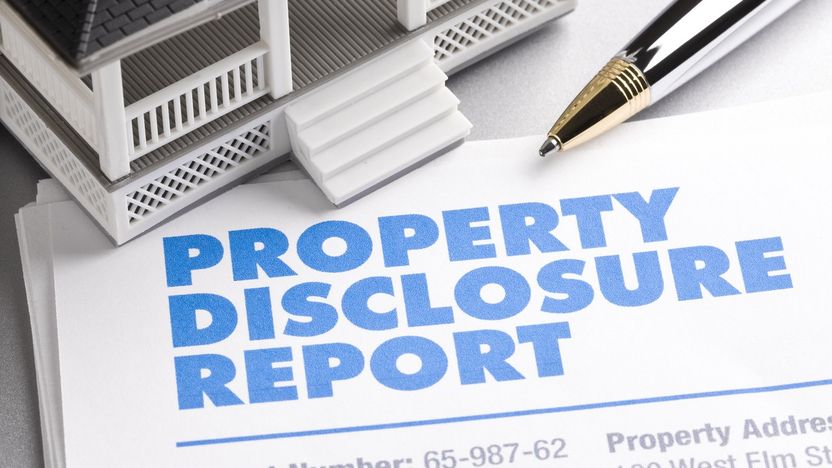WHAT NEEDS TO BE LEGALLY DISCLOSED WHEN BUYING A HOUSE
Acquiring a home is an important life event, and it is vital to be fully informed on the details sellers are required by law to provide about their property. GD Property Solicitors explains your rights as a buyer in this guide. We’ll go into the details of what sellers or estate agents are required to disclose, including things like the property information form and the safeguards provided by laws against unfair trade. When going through the home-buying process, it is important to know what options you have in case of incomplete disclosure.

BUYER’S REQUIREMENTS FOR DISCLOSURE
As a buyer, you are legally obligated to disclose certain information to the seller.
FINANCIAL TRANSPARENCY
As a buyer, it’s crucial to openly communicate your financial capacity to facilitate the house purchase process. This entails revealing the status of your funds, whether they are savings or a pre-approved mortgage agreement.
Additionally, you should disclose any conditions or contingencies that might impact your ability to proceed, such as the sale of your current home. Providing transparent information about your financial standing from the start helps avoid potential delays and builds trust in the transaction.
DECLARING YOUR INTENTIONS
You are also accountable for conveying your intentions for the property. If you plan substantial alterations like extensive renovations or a conversion for business purposes, it’s essential to disclose these plans. This is particularly crucial if such changes could have implications for local planning permissions or community schemes. There might be covenants or restrictions in certain cases that could impact your proposed use of the property, making transparency about your intentions essential to sidestep potential legal complications. Relying on guidance from your estate agent is advisable to determine what information should be shared with the seller and the legal consequences involved.
RAMIFICATIONS OF NON-DISCLOSURE FOR BUYERS
Embarking on the journey of purchasing a property entails not only discovering your dream home but also engaging in a process of legal and financial transparency. Here are the repercussions of non-disclosure for buyers.
- DISRUPTIONS IN THE SALES PROCESS:
Failing to disclose crucial information as a buyer can result in significant disruptions in the sales process. For instance, neglecting to reveal involvement in a property chain or the unavailability of immediate funds can lead to delays, erode trust, and, in some instances, cause the collapse of the transaction. It is imperative to offer a clear timeline and be forthright about potential delays from your side to uphold the integrity of the buying process. - LEGAL AND ETHICAL IMPLICATIONS:
There are legal and ethical considerations to take into account. Withholding vital information, intentionally misleading the seller, or not adhering to agreed terms may have legal consequences. Ethically, it revolves around entering into a transaction with integrity and ensuring fairness for all parties. If a seller is misled to believe that you can proceed faster or offer more than you genuinely can, it may result in a legal claim for misrepresentation or breach of contract. - ENSURING COMPLIANCE:
To steer clear of these pitfalls, maintain open communication with your solicitor and estate agent. Ensure prompt submission of all required documents and keep them informed of any changes in your circumstances. If uncertain about what needs to be disclosed, it is prudent to err on the side of caution and maintain transparency. This approach expedites the conveyancing process, establishes a positive relationship with the seller, and lays the foundation for a seamless transaction and transfer of property ownership.

LEGAL REQUIREMENTS FOR SELLER DISCLOSURE
When embarking on the journey of purchasing a house, certain legal obligations dictate what sellers must disclose. Central to this is the property information form, commonly known as the TA6. This document serves as a comprehensive questionnaire completed by sellers, providing detailed information about various aspects of the property. It encompasses a broad range of details, from any disputes with neighbors to alterations made to the property.
The unfair trading regulations also play a pivotal role in this context, binding estate agents to fair practices concerning potential buyers. These regulations prevent estate agents from concealing material information that could impact a buyer’s decision. Essentially, they are prohibited from withholding significant details that might affect the value or desirability of the property.
For example, known issues with property boundaries or structural concerns must be disclosed. Failure to disclose such information can be construed as misleading, holding both the estate agent and the seller accountable.
Estate agents, with a dual duty to both buyer and seller, are obligated to disclose any information that comes to their attention and could influence the buyer’s decision. This shift towards consumer protection ensures that buyers enter into contracts with full awareness.
Furthermore, if, during the conveyancing process, the buyer’s solicitor uncovers withheld information, legal avenues exist for the buyer to seek recourse. This may involve renegotiating the purchase price or, in extreme cases, withdrawing from the purchase entirely. The legal framework ensures transparency and accountability, safeguarding the interests of both buyers and sellers in real estate transactions.
THE PROPERTY INFORMATION FORM EXPLAINED
The Property Information Form (PIF), formally known as the TA6 form, is a critical document in the property selling process in the UK. It’s a comprehensive questionnaire that sellers need to fill out, providing detailed information about the house they’re selling. This form is designed to give you, the buyer, a clearer picture of what you’re purchasing.
The form includes questions about the property’s boundaries, any disputes with neighbours, known structural issues, and details of alterations or extensions that have been carried out. Sellers must also declare whether the property is connected to mains water, has any issues with flooding, or if there are any formal and informal arrangements that affect the property, like shared access.
Accurate completion of the PIF is not optional; it’s a legal requirement. Sellers must be honest and comprehensive in their responses because any misleading or false information could be grounds for legal action post-completion. It’s not only about ticking boxes; it’s about providing a transparent account of the property’s state and any factors that might influence a buyer’s decision or the value of the property.
The PIF acts as a first line of defence for buyers against any surprises that might crop up after the purchase is complete. It is a fundamental part of the conveyancing process and one that your solicitor will review closely. If there’s something amiss or a detail that seems unclear, your solicitor can raise enquiries, ensuring that any potential issues are addressed before you commit to buying the property.
THE ROLE OF CONSUMER PROTECTION IN HOME BUYING
Consumer protection laws play a crucial role in the home buying process, providing a shield for potential buyers against unfair practices. In the UK, these regulations are robust, ensuring that the interests of the buyer are thoroughly safeguarded.
The Consumer Protection from Unfair Trading Regulations 2008, for instance, mandates that sellers and their estate agents refrain from engaging in unfair practices. These practices encompass providing misleading information or withholding essential details about the property. The estate agent, as the professional in the transaction, bears the responsibility of disclosing relevant information that could impact the buyer’s decision-making process. This includes information gathered independently or provided by the seller.
These laws are crafted to prevent buyers from being misled by sellers or estate agents. For instance, if there are significant construction plans nearby that could affect the property’s value or enjoyment, disclosure is mandated. The same principle applies if there are known development plans within the area that could impact the property.
Through the enforcement of these consumer protection measures, buyers are less likely to encounter unwelcome surprises post-purchase. In the event that a buyer discovers they were misled or crucial information was omitted, legal recourse may be pursued. This could involve reporting the matter to Trading Standards, seeking redress through the courts, or, in severe cases of misrepresentation, potentially unwinding the sale. These measures underscore the commitment to transparency and fairness in real estate transactions, promoting a trustworthy home buying environment.

WHEN INFORMATION IS WITHHELD BY ESTATE AGENTS OR SELLERS
Failure by an estate agent or seller to disclose legally required information can result in significant consequences, impacting the buyer’s decision-making process and potentially leading to a purchase they might have reconsidered.
For instance, if an estate agent is aware of a major structural issue with a property but fails to communicate this to the potential buyer, it constitutes a clear violation of their duty under the Consumer Protection from Unfair Trading Regulations. The estate agent is obligated to disclose any information that could influence the buyer’s decision to proceed with the purchase.
Similarly, sellers are mandated to provide honest information on the Property Information Form, and withholding information here can also have legal repercussions. If, post-sale, it is revealed that the seller knowingly omitted or misrepresented information about the property, the buyer may have grounds for seeking redress.
When crucial information is found to have been withheld, the buyer has several avenues for recourse. They can report the estate agent to the relevant professional body, such as the National Association of Estate Agents, or to the Trading Standards office, which has the authority to take action if consumer protection laws are breached.
Legal advice can also be sought by the buyer to understand their position and explore potential remedies. Depending on the severity of the omission, the buyer may be entitled to compensation, or, in more serious cases, rescission of the contract might be an option, allowing the buyer to undo the transaction. These measures emphasize the importance of transparency and adherence to consumer protection laws in real estate transactions.
THE CONVEYANCING PROCESS: TRANSFERRING PROPERTY OWNERSHIP
The conveyancing process constitutes the legal transfer of property ownership from the seller to the buyer, commencing upon the acceptance of an offer and concluding with the handover of keys. At the core of this process is the conveyancer or buyer’s solicitor, tasked with conducting due diligence to ensure the buyer possesses comprehensive information about the property they intend to acquire.
Throughout conveyancing, the buyer’s solicitor scrutinizes the property information form and undertakes various searches. These searches unveil details about local area plans, land use, and other factors potentially impacting the property’s value or the buyer’s enjoyment. The solicitor also validates property boundaries, rights of way, and any other legal considerations influencing the buyer’s decision.
A pivotal role of the buyer’s solicitor is to uncover undisclosed information or discrepancies in the details provided by the seller. In the event of issues, the solicitor raises enquiries with the seller’s solicitor to address these matters before proceeding.
The conveyancing process is the stage where sale terms are negotiated and finalized, contracts are exchanged, and the completion date is established. It stands as a critical juncture where legal and financial particulars are meticulously examined, ensuring the buyer’s protection and a comprehensive understanding of their commitment.
WHAT BUYERS CAN DO IF DISCLOSURES ARE INCOMPLETE OR MISLEADING
If a buyer finds that disclosures are incomplete or misleading after the purchase of a house, there are several steps they can take. The first action should be to contact their solicitor, who can advise on the legal standpoint and the options available.
If the issue is significant, the buyer may have a claim for misrepresentation. If it can be proven that the seller or estate agent deliberately withheld or misrepresented information that influenced the buyer’s decision to purchase, the buyer may be entitled to compensation for any losses incurred.
In some cases, the buyer might have the option to rescind the contract, effectively reversing the sale. However, this is generally reserved for severe cases and can be a complex legal process.
For issues with estate agents, buyers can lodge a complaint with the Property Ombudsman or the National Association of Estate Agents. These bodies can investigate professional misconduct and impose sanctions on the agent, if necessary.
It’s also possible to report the matter to Trading Standards, especially if there’s suspicion that the seller or estate agent has breached consumer protection laws. Trading Standards can take action against the offending party, which can include fines or other penalties.
TALK TO US
No matter what your real estate residential needs, the expert team at GD Property Solicitors is here to help. Do not hesitate to get in touch with our conveyancing solicitors today; simply call us on 0161 710 1786 or complete our online enquiry form and we will call you back as soon as we can
